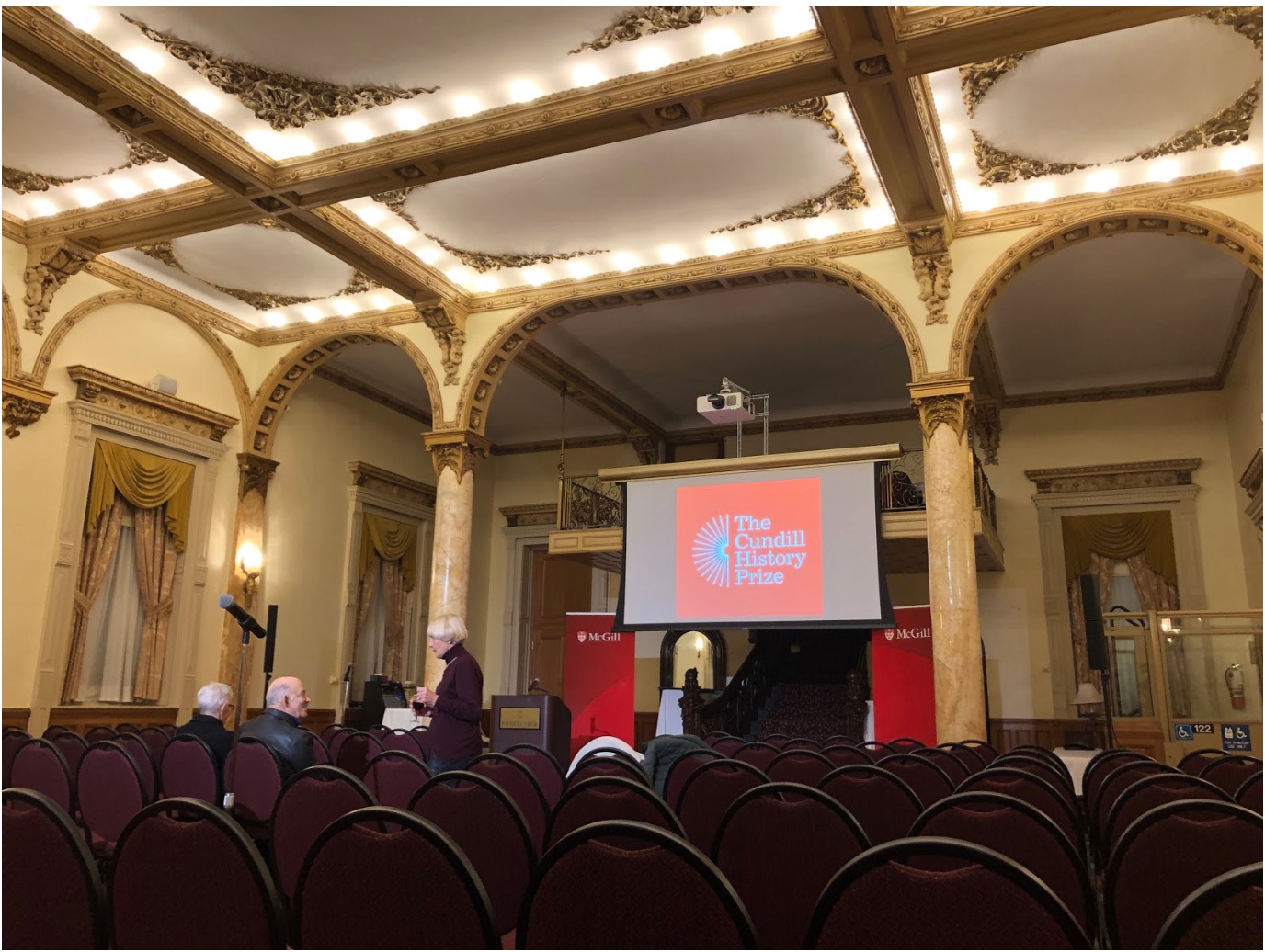Harvard history professor Maya Jasanoff drew a crowd of over 100 attendees to the McGill Faculty Club on Nov. 13, where she delivered the annual Cundill Lecture. Jasanoff, who serves as the Coolidge Professor of History at Harvard, received the 2018 Cundill History Prize for her book The Dawn Watch: Joseph Conrad in a Global World. Established in 2008 by McGill alumnus F. Peter Cundill, the prize is awarded to one book annually on the basis of its profound literary, social, and academic influence in the field of history. In her lecture, Jasanoff detailed the journey of her novel and its subject, Polish-British writer Joseph Conrad.
Christopher Chanco, a PhD student in the Department of History & Classical Studies, introduced the audience to the broad scope of Jasanoff’s writing.
“In her writing, Dr. Jasanoff has been exploring the global through the granular, finding the historical in the literary, and answering the big questions about global and social change through the lives of nomads and artists,” Chanco said.
Jasanoff’s lecture was guided by the question, ‘How do you tell a history?’ She began by presenting a set of headlines that one might find in present-day newspapers, such as “Bomb goes off in London: Maybe terrorism.” She was quick to disprove the audience’s hunches.
“If this looks like a history of our times, let me [correct] you,” Jasanoff said. “Each of these statements is really a description of something that also happened a century ago in a work of fiction; a novel, written by Joseph Conrad.”
Jasanoff then criticized the common linear approach that historians adopt when trying to understand Conrad’s influences. At first, she also took on this approach, studying the archives of the University of Oxford’s Rhodes House in detail.
“There, I realized I was looking at literature as a repository of period detail,” Jasanoff said. “I was trying to string together histories without a real purpose to the fiction.”
Jasanoff proceeded to link Conrad to his historical context, placing him in a world with growing colonialism, imperialism, and globalization.
“As I got to know him, I discovered that Conrad did not merely witness the step change of the scale and range of globalization,” Jasanoff said. “He, in certain ways, embodied it in his own global and transcontinental life.”
In her exploration of Conrad, she found discrepancies between his narrative writings and his historical accounts, as well as a general lack of information. Jasanoff went on to explain that only four per cent of his collected work concerns his life before 1895.
“Conrad left very little documentary trace of the part of his life which would then go on to inform that fiction he spent the rest of his life writing about,” Jansanoff said.
This posed a problem for Jasanoff, which she navigated by reading around the gaps that he left.
“Though I cannot reliably get inside anyone’s head, using the tools of a historian, I can begin to figure out the conditions under which a person is operating,” Jasanoff said.
Jasanoff’s strategy involved comparing her knowledge of Conrad’s environment to how he depicted it in his writing. This method gave her insight into the factors that informed his fiction. Seeking to further understand how Conrad concocted his stories, Jasanoff followed in his path and sailed across the Indian Ocean, where she came to a realization.
“It was on board this ship that I realized that I was not writing a history of the British Empire,” Jasanoff said. “I was writing a history about globalization, because these ships still take the routes that Conrad took.”
Yael Halevi-Wise, Associate Professor of English and Jewish Studies at McGill, delivered the closing remarks.
“Maya Jasanoff has shown more broadly that Conrad lived and wrote at the dawn of an era that we [now] recognize as a time of rushed, globalized movements and identities,” Halevi-Wise said. “[She] has compelled us to listen differently, court opportunities for unconventional dialogue, and above all, to [resist] homogeneity.”









